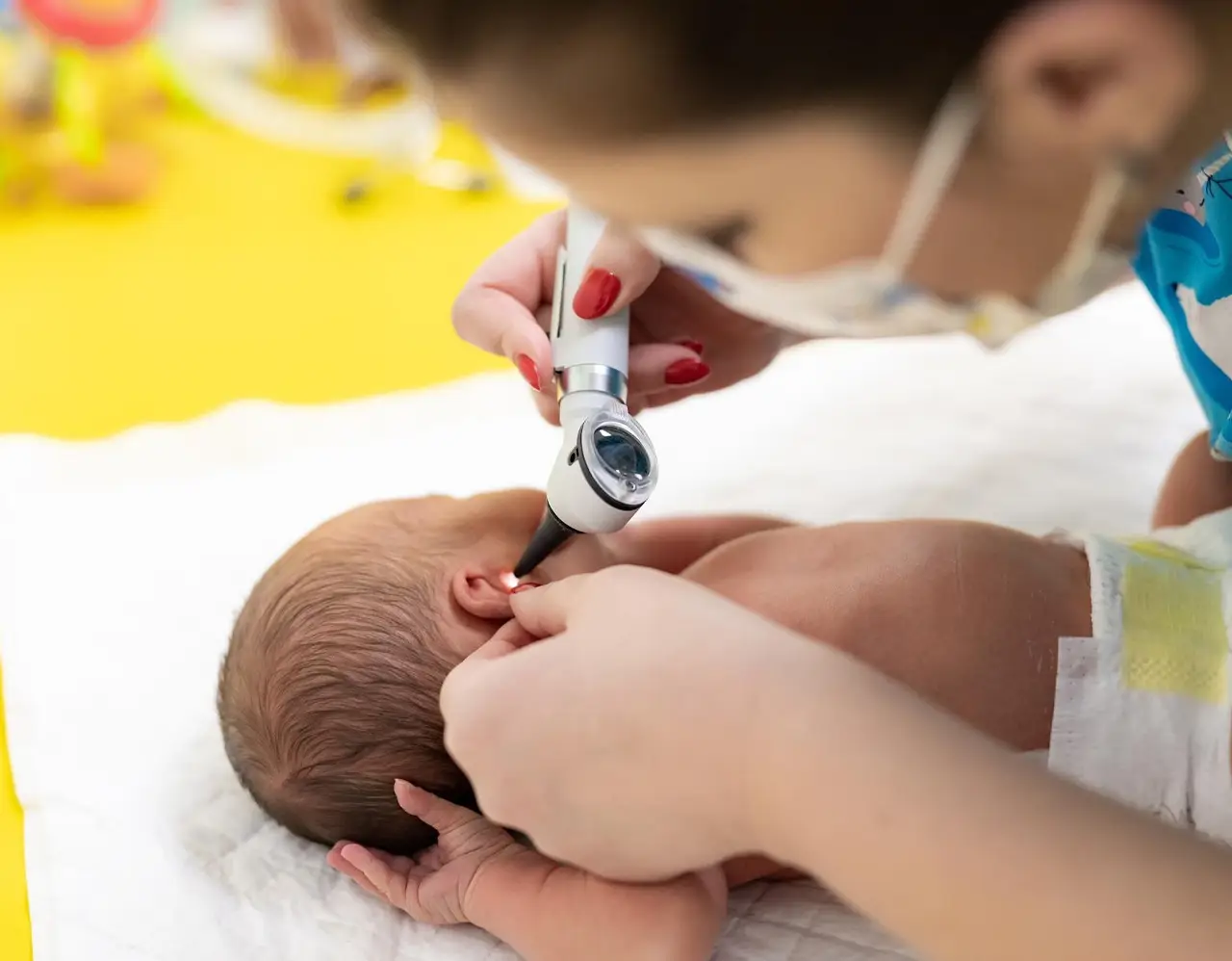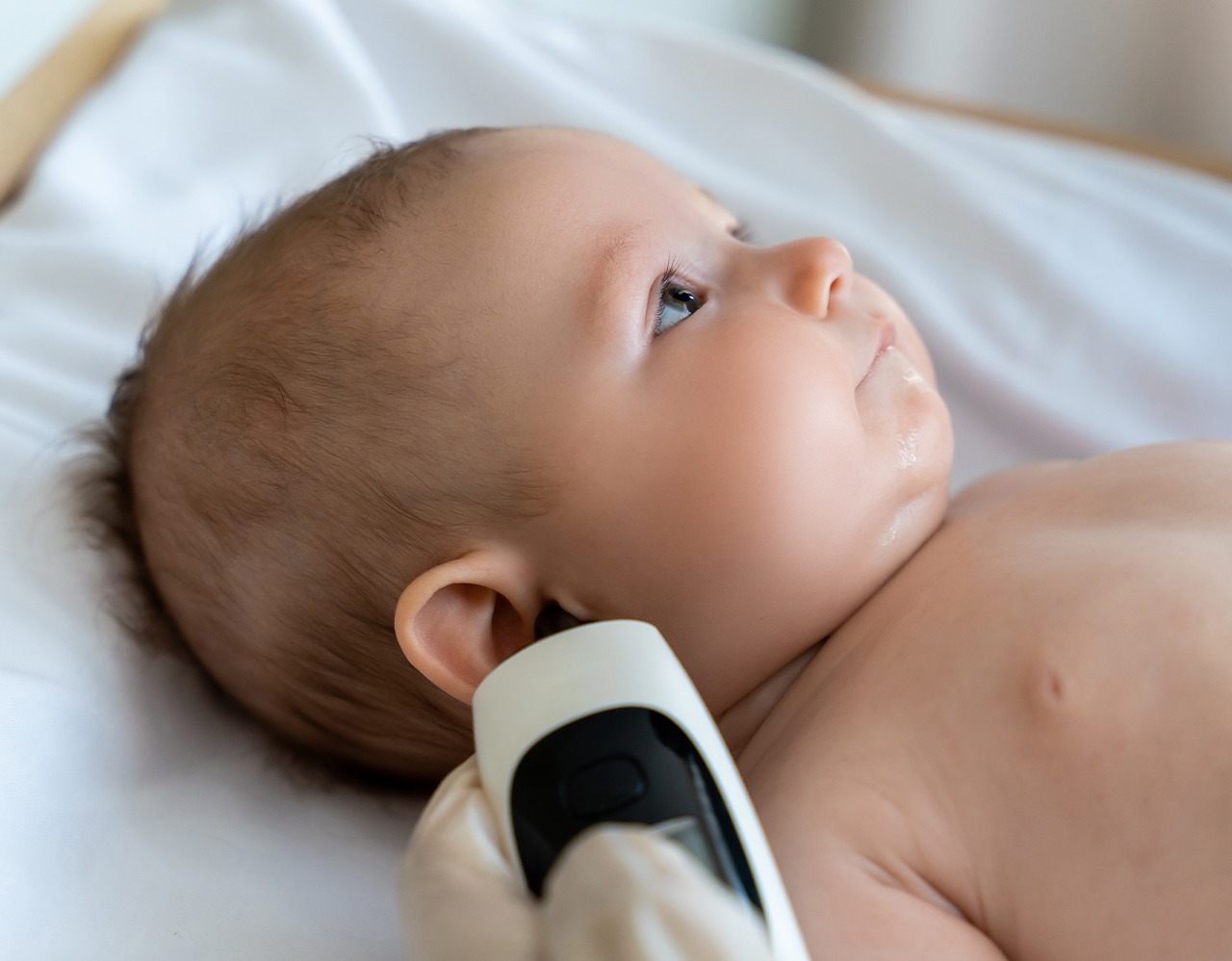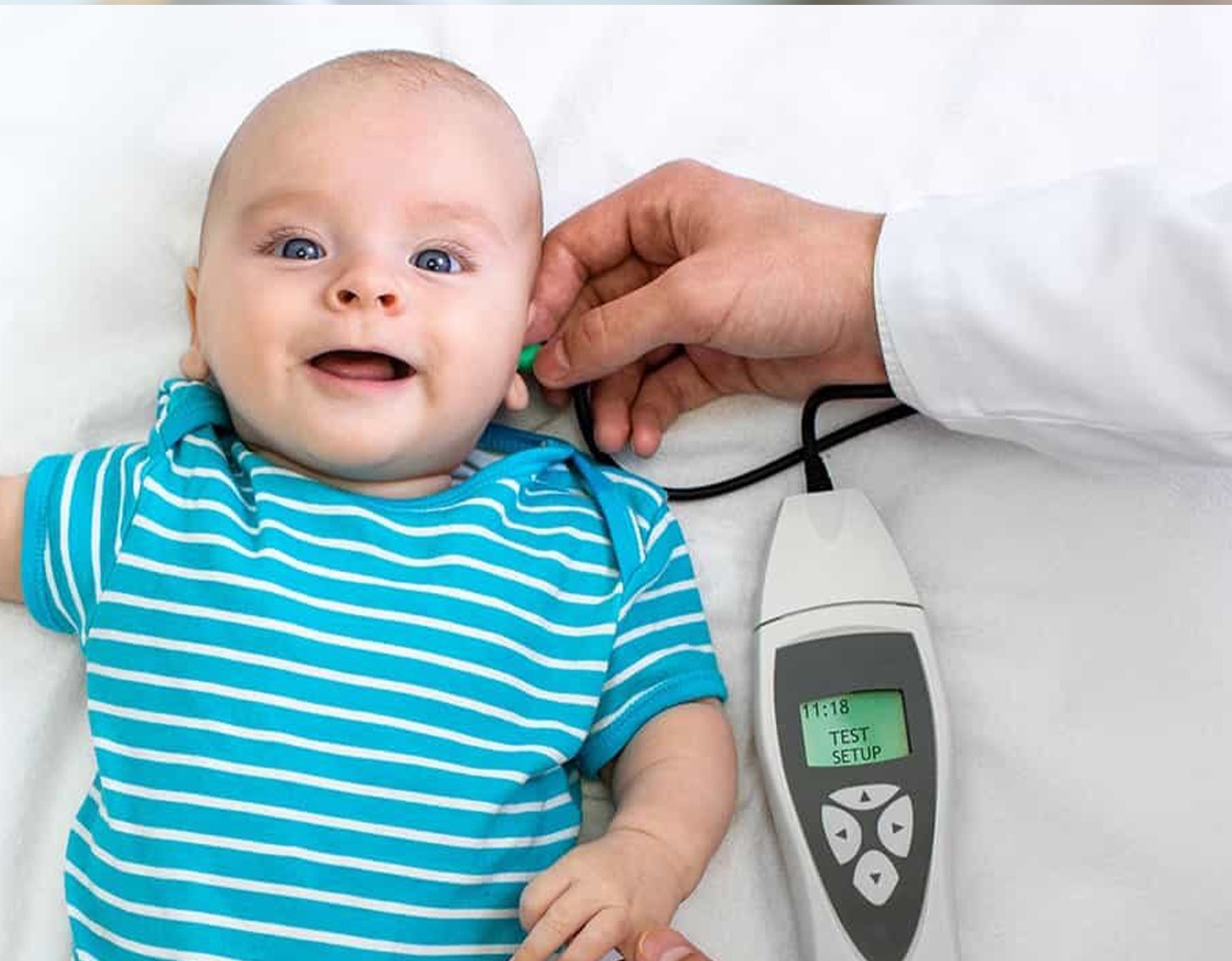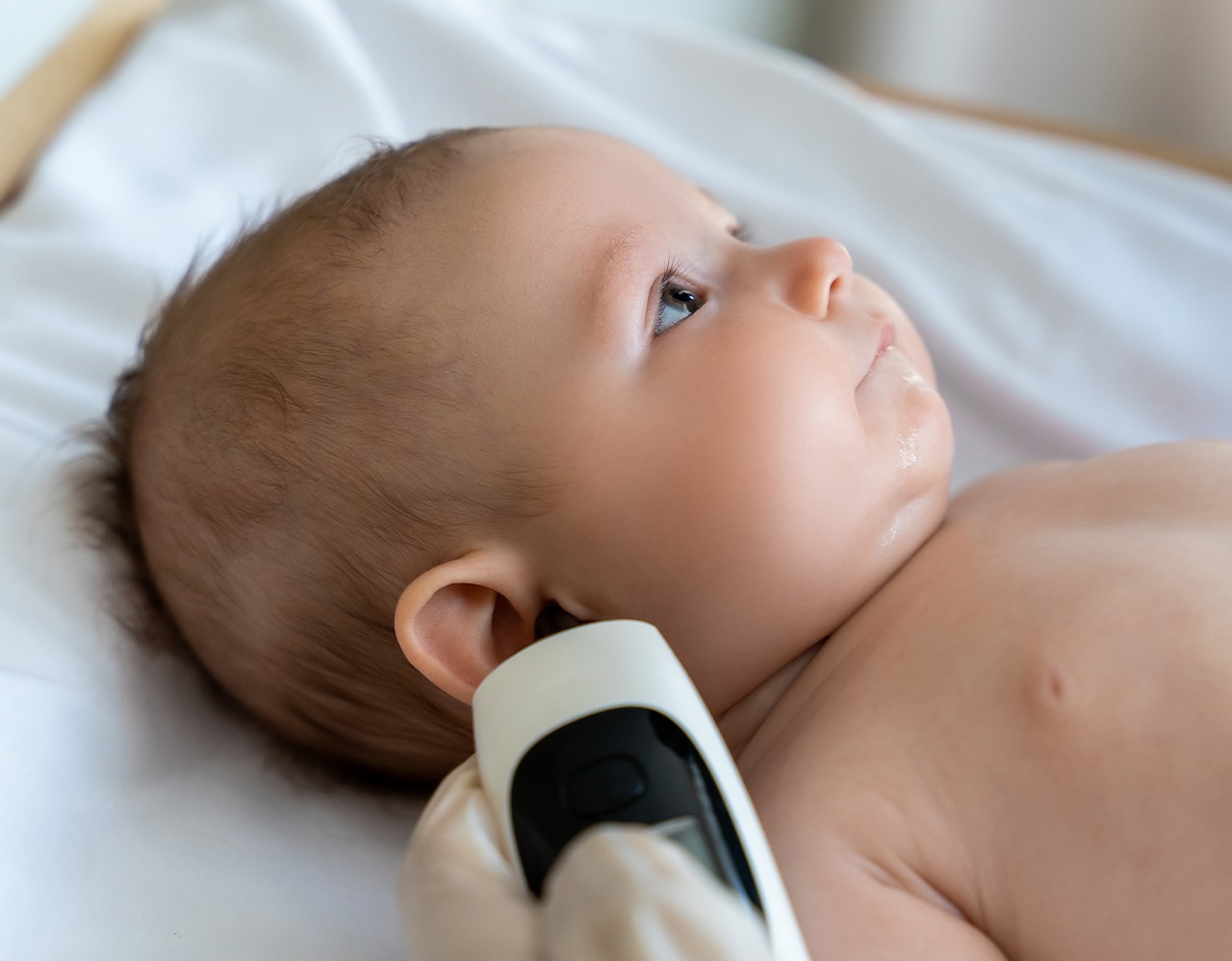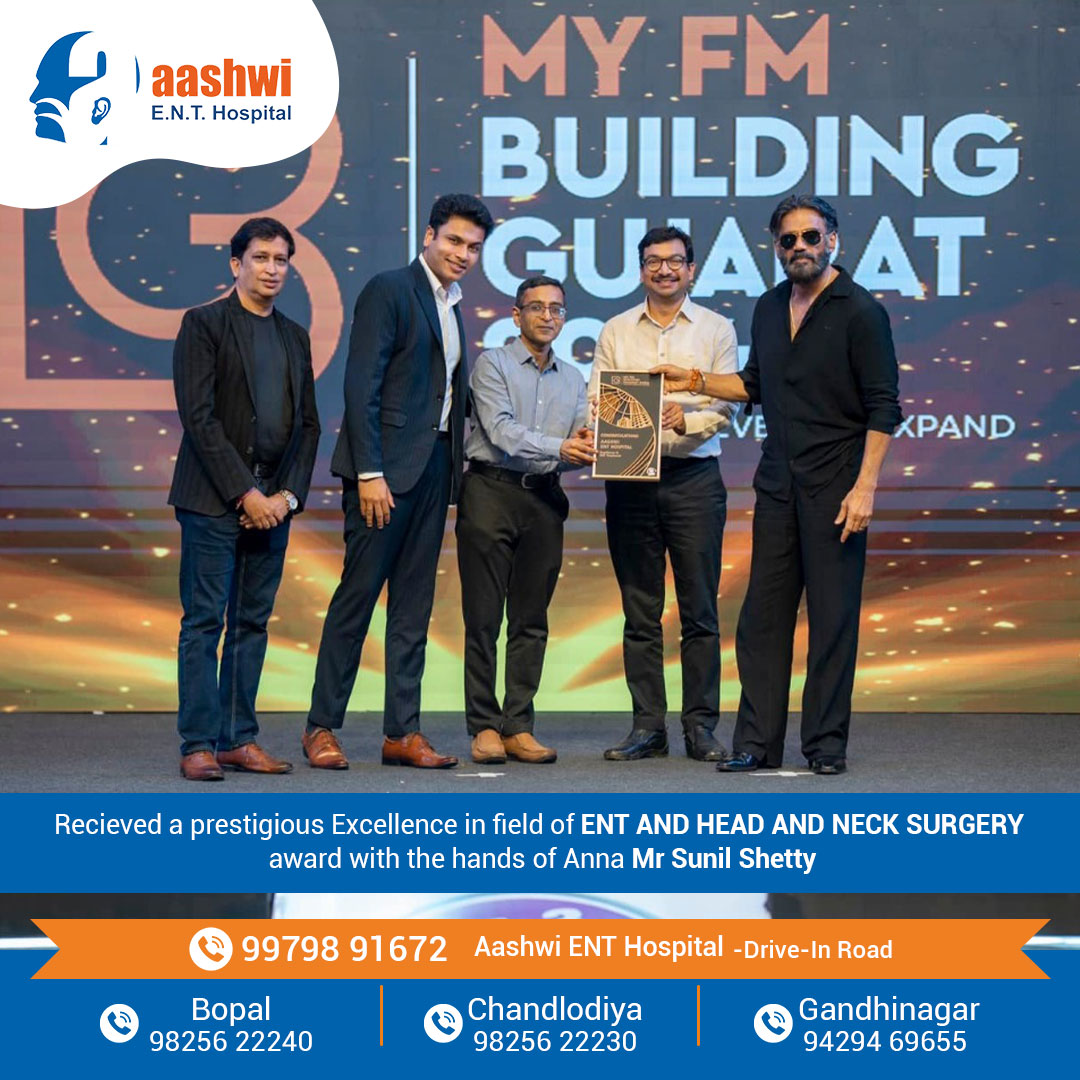Procedure of Newborn Hearing Screening
1. Initial Hearing Screening
This typically occurs within the first month of a child’s life, often while they are still in the hospital or immediately after discharge. This non-invasive screening is pain-free and takes only a minute, giving parents the chance to manage issues with hearing early on. During this examination, the baby’s ears are listened to when the baby is sleeping or resting quietly to minimize discomfort.
There are mainly two kinds of tests. These tests form the primary screening process.
OAE Test: The process measures the sound generated by the inner ear or cochlea through a small probe inserted gently into the ear. In a healthy ear, otoacoustic emissions happen normally; if no sound is detected, it may indicate impairment in hearing.
Automated Auditory Brainstem Response (AABR) Test: Small electrodes are placed on the head of a baby to record the brain’s response to sound. AABR lets you know how the sound from the ear travels to the brain so that it offers useful information about the auditory pathway.
2. Diagnostic Evaluation for Babies Who Failed the Initial Screening
If an abnormality is found in the first test, a second test is performed to verify this. This will eliminate such temporary causes as fluid behind the ears or intercurrent illness, which could be present at the time of a test and cause apparent failure. A complete ABR test is one of the diagnostic tests and can give more comprehensive results. Early and accurate diagnosis is important for any necessary intervention that would help achieve the best outcome for developmental purposes.
Newborn Hearing Test Advanced Technology and Expertise
1. Latest diagnostic equipment
The use of the latest, high-accuracy infant hearing test equipment enables any minute sign of hearing defects to be picked. OAE and ABR devices with clear objective results ensure accurate assessment by the medical team for each baby’s ability to hear. Such advanced equipment cuts the occurrence of false positives and ensures accurate early detection, thereby dispelling any illusions of conducting more tests than necessary.
2. Specialised Audiology Team
The newborn hearing screening program is conducted by the most adequately trained audiologists and ENT specialists. This team is aware of pediatric audiology and specific nuances related to infant hearing assessment. Their experience ensures testing that is both delicate and accurate, which further means a safe, reassuring environment for parents and babies alike. The competence of the team also assists in offering direct insights and care recommendations if need be.
3. Customised Testing for At-Risk Infants
For instance, in a baby known to suffer more from hearing impairment, those born preterm, or with a family history of this condition, further tests ensue to track the changes over time. Certain procedures ensure such babies are screened periodically beyond the neonatal period to catch delayed-onset problems for other conditions. Such measures help in intervention in time and close monitoring of development.
Early Identification, Counselling, and Follow-Up Care
1. Early and accurate detection
The hospitals, through sophisticated technology integrated with professional care, deliver high accuracy in the diagnosis of any loss of hearing. The early detection tendency helps parents treat these problems of hearing at the earliest possible opportunity, thus providing them support for the early intervention that can further stimulate cognitive and language development. Accurate detection happens to be the first step towards offering every child the best possible start.
2. Counselling and Support for Parents
If hearing impairment is diagnosed, it can come with a mix of emotions and several questions. The hospital has specialized counseling sessions conducted by audiologists and pediatric ENT specialists. The results are discussed in simple terms, the possible interventions are explained, and all questions are answered. It is aimed at equipping the family with knowledge so that they are well-informed about what to do next and where to seek further assistance.
3. Proper Follow-Up and Intervention Planning
Follow-up care is part of the process in the hospital, particularly for newborns who have a future follow-up and evaluation. Periodic appointments are scheduled for monitoring the child’s hearing, tracking the child’s progress, and for needed interventions such as a hearing aid or cochlear implant if required. Early intervention services like speech therapy and language development programs are accessible to help those who require more time than others.
Families are given a prescribed follow-up plan that specifies the next schedule of evaluations and check-ups. This is to make sure that each child’s hearing will be followed up on accordingly as he or she grows, with every chance to communicate well and flourish.
Any hearing problem found in a newborn can significantly be important for their cognitive and social development, too, since unannounced hearing loss will very easily affect anyone’s speech, language skills, and learning competencies. Aashwi ENT Hospital in Ahmedabad, equipped with advanced testing facilities and with a dedicated team working here, provides efficient newborn hearing screening services in terms of detecting any hearing problems with due care, counseling with kindness, and follow-up accordingly. It revolves around the process of newborn hearing tests with technology and expert support, shedding light on how the hospital ensures total support for infants and their families at every level.


